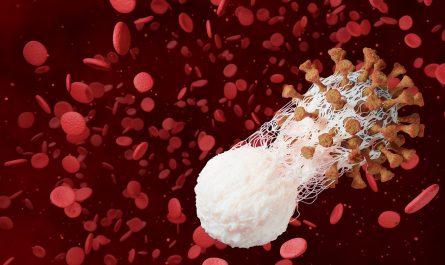Regulatory Compliance is Key
As the U.S. cannabis testing services market continues to grow and expand, so too does the need for rigorous product testing. With marijuana now legal for medical use in dozens of states and adult-use legal in over a dozen states as well, regulations around quality control and consumer safety have become increasingly stringent. Most states with legal cannabis programs now require marijuana flowers, concentrates and infused products undergo thorough laboratory testing before being sold in licensed dispensaries. This testing helps ensure products are free of pesticides, molds and meet allowable THC and CBD concentration limits set by each state’s laws and rules. Compliance with these regulations is essential for businesses in the industry, as failing tests can result in entire batches being destroyed.
Types of Required Cannabis Testing
There are several key areas that legally produced cannabis must undergo testing for in nearly all regulated state markets:
– Potency Analysis – This tests the chemical composition and confirms the amounts of THC, CBD and other cannabinoids in a product. U.S. Cannabis Testing Services Knowing accurate potency is important for both quality control and compliance with legal THC limits.
– Residual Solvent Screening – For cannabis concentrates and infused edibles, laboratories check for any dangerous residual solvents left over from the extraction process that could be harmful if consumed. Butane, propane, ethanol and other solvents are screened for.
– Terpene Profiling – Testing identifies and quantifies the unique terpene profiles of different cannabis strains. Terpenes influence aroma, flavor and may play a role in effects. Profiles help assure consistent quality.
– Heavy Metal Screening – To prevent contamination, products are screened for unacceptable levels of heavy metals like lead, cadmium and arsenic that could pose long term health risks.
– Microbial Screening – Cultivation and production processes are analyzed to check for total yeast and mold counts as well as presence of dangerous pathogens like E. coli, salmonella and aspergillus.
– Pesticide Residue Screening – Given marijuana’s agricultural nature, checking for pesticide residues left over after growth is important both for safety and compliance with the few pest control products approved for cannabis use.
Improving Cultivation and Production Standards
As testing technology and regulations have progressed, so too have cannabis cultivation and manufacturing practices. Where product testing was once moderately advanced, it now plays a crucial quality control role that drives continual improvements industry-wide. Fail rates have fallen as businesses utilize test results to refine standard operating procedures for growing cannabis and producing concentrates and edibles. Feedback from laboratory analysis further enhances genetic selection programs and integrated pest management plans on farms. Testing benchmarks and data sharing across state lines also uplift industry-wide standards on a national scale over time. The rigorous compliance-focused system enhances both public safety and confidence in legally-regulated cannabis markets.
Leading Testing Laboratories
To meet the immense testing demand from licensed cannabis businesses, a thriving US Cannabis Testing Services market of commercial testing laboratories has emerged in recent years. Some of the most prominent testing lab companies with facilities serving multiple state markets include:
– CannaSafe – One of the first and largest national players with 10+ labs across the western U.S. Offers the full range of required analyses from microbe to pesticides.
– EVIO Labs – A leader in cannabis testing science with 15+ labs and R&D headquarters in Oregon. Known for advanced technology and customized assays.
– AG PharmALabs – Operating 8 state-of-the-art labs across the southwest U.S. with a reputation for speed, accuracy and customer service.
– Anresco Laboratories – Veteran toxicology lab transitioned into cannabis, now operating 6 facilities specializing in residue testing.
– PharmLabs – Established hemp and cannabis testing provider based in Florida with experience in regulated industries.
– Steep Hill – Pioneered cannabis certification programs and analytic testing over a decade ago from headquarters in Pennsylvania.
With the complexity and volume of required analyses, these large multi-state laboratory firms have infrastructure and capacity advantages. But smaller niche testing labs also play a role, especially for new startups and research organizations. Competition spurs continuous innovation across the testing sector.
Positioned for Further Growth
As the US Cannabis Testing Services market expands to new participating states and countries worldwide, commercial testing lab infrastructure will need to grow in parallel. Experts predict cannabis business revenue could realistically reach $30-50 billion by 2025 in the U.S. alone based on current trends. With established regulatory models, cannabis testing serves as the backbone for ensuring safe, quality-controlled product flows within emerging multibillion dollar lawful markets. The blossoming of specialized analysis labs over the last few years demonstrates how rigorous testing standards correlate to, and help drive, the maturation and stability of the overall cannabis marketplace on national and global scales.
*Note:
1.Source: Coherent Market Insights, Public sources, Desk research
2.We have leveraged AI tools to mine information and compile it


